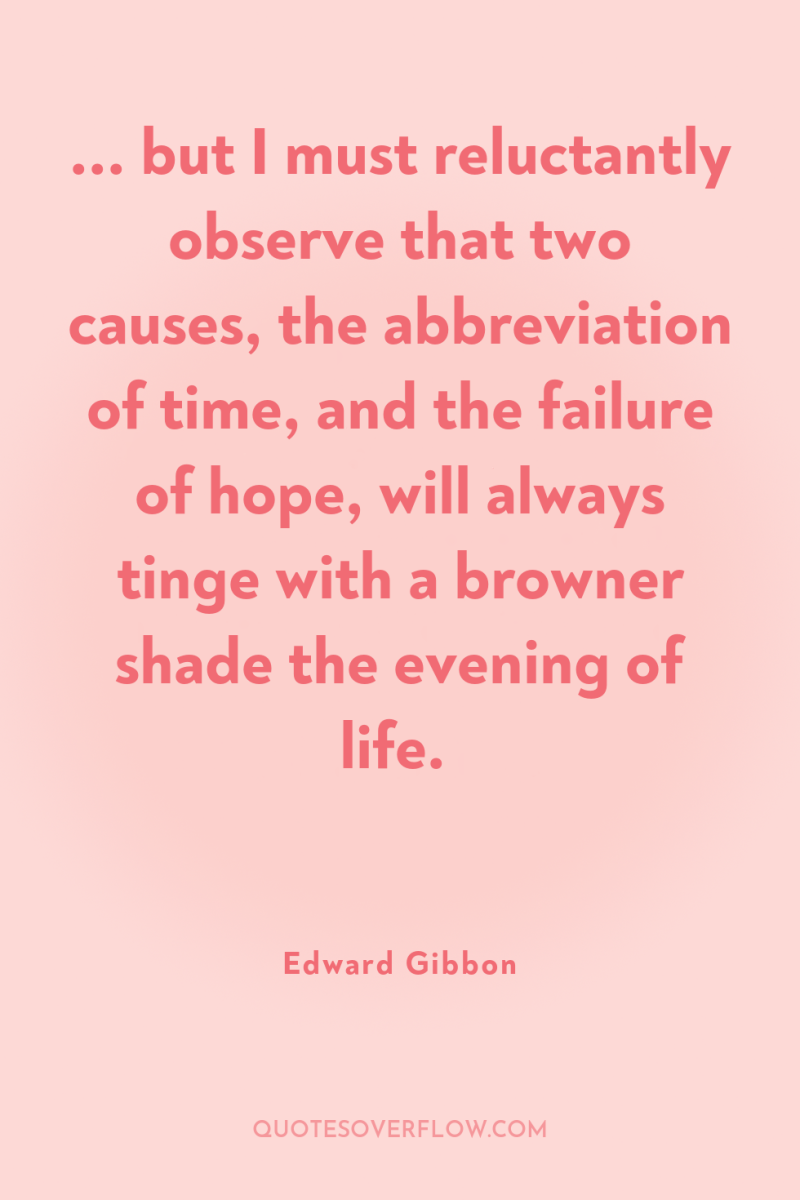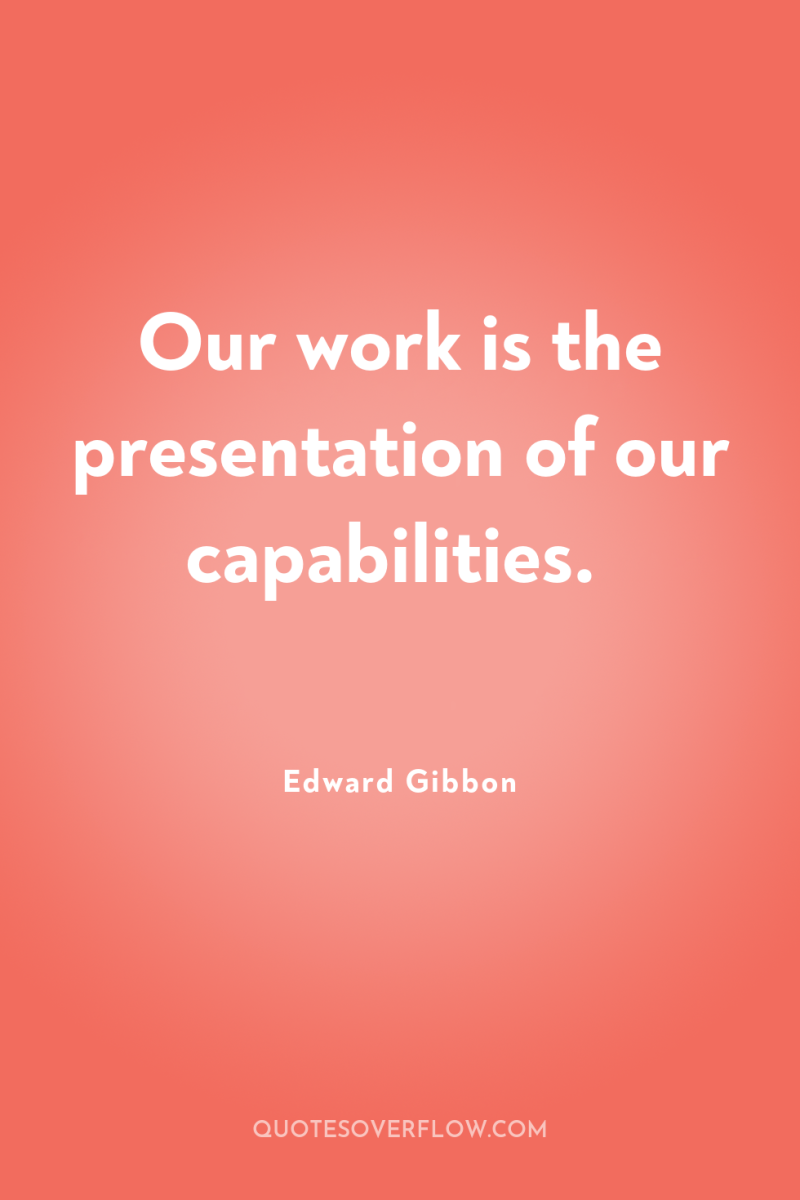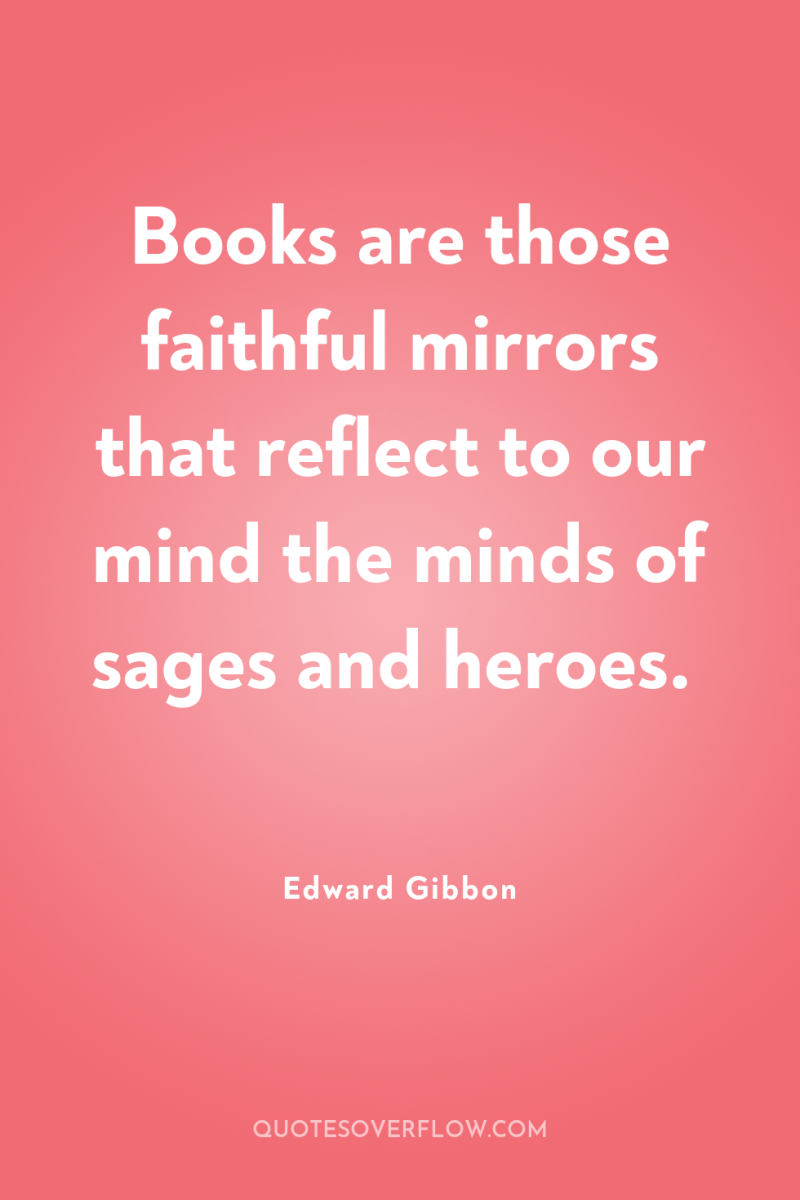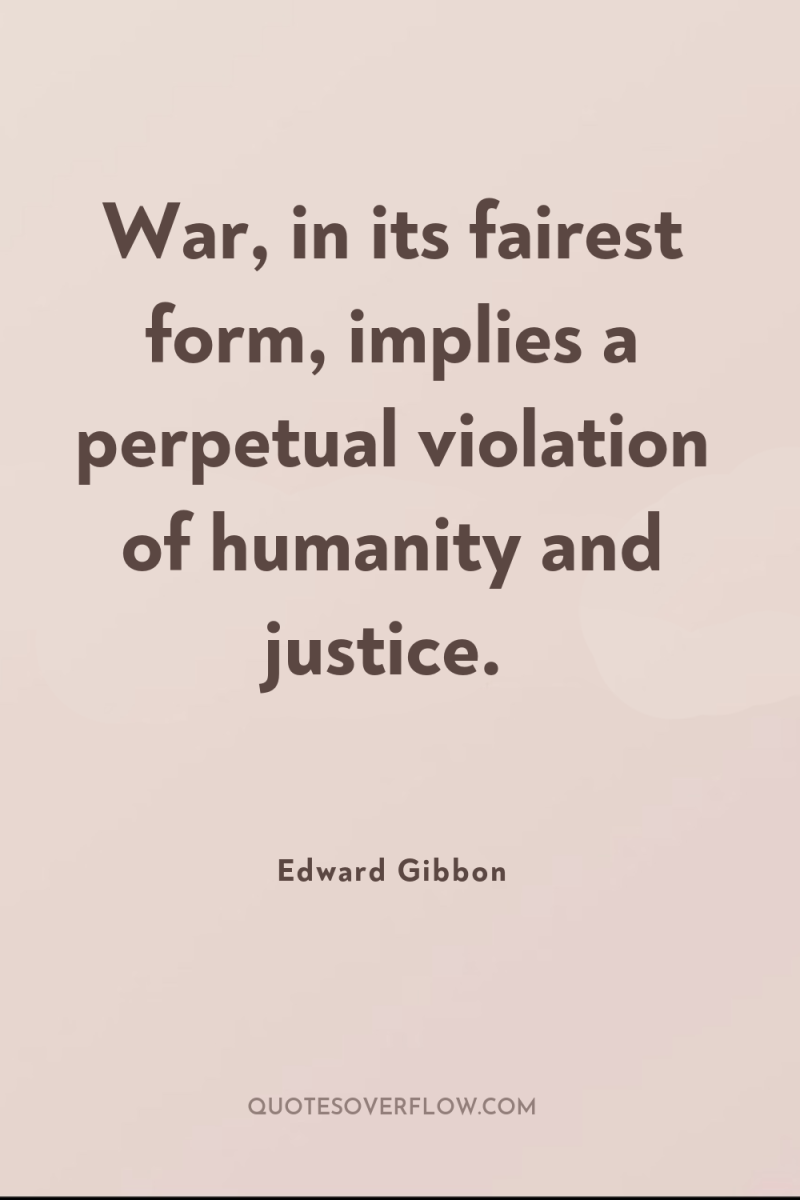
... but I must reluctantly observe that two causes, the abbreviation of time, and the failure of hope, will always tinge with a browner shade the evening of life.Edward Gibbon

Our work is the presentation of our capabilities.Edward Gibbon

Every person has two educations, one which he receives from others, and one, more important, which he gives to himself.Edward Gibbon

Books are those faithful mirrors that reflect to our mind the minds of sages and heroes.Edward Gibbon

War, in its fairest form, implies a perpetual violation of humanity and justice.Edward Gibbon
My early and invincible love of reading-- I would not exchange for the treasures of India.Edward Gibbon
Edward Gibbon, in his classic work on the fall of the Roman Empire, describes the Roman era's declension as a place where "bizarreness masqueraded as creativity.Edward Gibbon
Unprovided with original learning, unformed in the habits of thinking, unskilled in the arts of composition, I resolved to write a book.Edward Gibbon
Where error is irreparable, repentance is useless.Edward Gibbon
All that is human must retrograde if it does not advance.Edward Gibbon
The obvious definition of a monarchy seems to be that of a state, in which a single person, by whatsoever name he may be distinguished, is entrusted with the execution of the laws, the management of the revenue, and the command of the army. But, unless public liberty is protected by intrepid and vigilant guardians, the authority of so formidable a magistrate will soon degenerate into despotism. The influence of the clergy, in an age of superstition, might be usefully employed to assert the rights of mankind; but so intimate is the connection between the throne and the altar, that the banner of the church has very seldom been seen on the side of the people. A martial nobility and stubborn commons, possessed of arms, tenacious of property, and collected into constitutional assemblies, form the only balance capable of preserving a free constitution against enterprises of an aspiring prince. .Edward Gibbon
Under a democratical government, the citizens exercise the powers of sovereignty; and those powers will be first abused, and afterwards lost, if they are committed to an unwieldy multitude.Edward Gibbon
If the empire had been afflicted by any recent calamity, by a plague, a famine, or an unsuccessful war; if the Tiber had, or if the Nile had not, risen beyond its banks; if the earth had shaken, or if the temperate order of the seasons had been interrupted, the superstitious Pagans were convinced that the crimes and the impiety of the Christians, who were spared by the excessive lenity of the government, had at length provoked the divine justice.Edward Gibbon
The army is the only order of men sufficiently united to concur in the same sentiments, and powerful enough to impose them on the rest of their fellow-citizens; but the temper of soldiers, habituated at once to violence and to slavery, renders them very unfit guardians of a legal, or even a civil constitution.Edward Gibbon
Augustus was sensible that mankind is governed by names; nor was he deceived in his expectation, that the senate and the people would submit to slavery, provided they were respectfully assured that they still enjoyed their ancient freedoms.Edward Gibbon
It was an inflexible maxim of Roman discipline that good soldier should dread his own officers far more than the enemyEdward Gibbon
Fear has been the original parent of superstition, every new calamity urges trembling mortals to deprecate the wrath of invisible enemiesEdward Gibbon
The winds and waves are always on the side of the ablest navigators.Edward Gibbon
Many a sober Christian would rather admit that a wafer is God than that God is a cruel and capricious tyrant.Edward Gibbon
Conversation enriches the understanding but solitude is the school of genius.Edward Gibbon
History is indeed little more than the register of the crimes follies and misfortunes of mankind.Edward Gibbon
Unprovided with original learning unformed in the habits of thinking unskilled in the arts of composition I resolved to write a book.Edward Gibbon
I was never less alone than when by myself.Edward Gibbon
My early and invincible love of reading I would not exchange for the treasures of India.Edward Gibbon
The various modes of worship which prevailed in the Roman world were all considered by the people as equally true by the philosopher as equally false and by the magistrate as equally useful.Edward Gibbon
I never make the mistake of arguing with people for whose opinions I have no respect.Edward Gibbon
The winds and the waves are always on the side of the ablest navigators.Edward Gibbon
Every man who rises above the common level has received two educations: the first from his teachers; the second, more personal and important, from himself.Edward Gibbon
Unprovided with original learning, unformed in the habits of thinking, unskilled in the arts of composition, I resolved to write a book.Edward Gibbon
History is indeed little more than the register of the crimes, follies, and misfortunes of mankind.Edward Gibbon
The courage of a soldier is found to be the cheapest and most common quality of human nature.Edward Gibbon
Our sympathy is cold to the relation of distant misery.Edward Gibbon
I understand by this passion the union of desire, friendship, and tenderness, which is inflamed by a single female, which prefers her to the rest of her sex, and which seeks her possession as the supreme or the sole happiness of our being.Edward Gibbon
I was never less alone than when by myself.Edward Gibbon